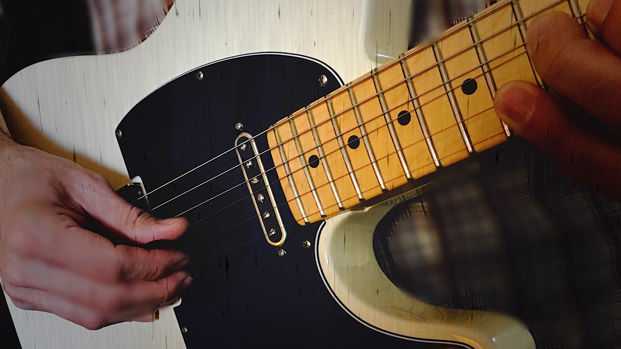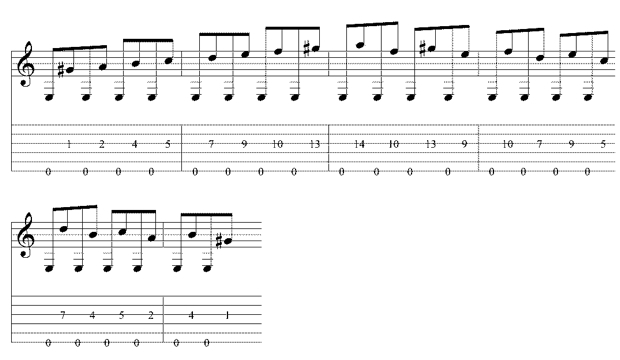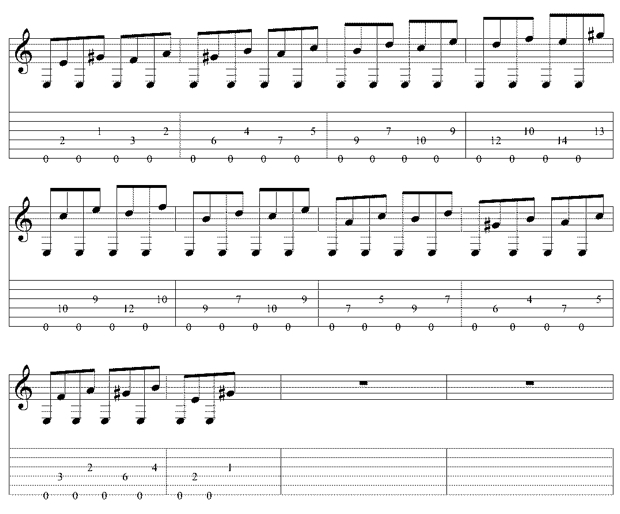What In the World: Oud-Style String-Skipping Pedal Tones
All the latest guitar news, interviews, lessons, reviews, deals and more, direct to your inbox!
You are now subscribed
Your newsletter sign-up was successful

The oud is an ancient, fretless instrument, originating in the Middle East. You could say it is the grandfather of the guitar, with the lute developing from the oud and then finally the guitar from the lute.
There are 11 strings on the oud: five courses, or sets, of doubled strings and a single low string, usually a C. It is still widely popular in many places in the world. Learning basic techniques from this instrument can add a cool sound to your playing and maybe help to inspire new and fresh ideas.
The technique we will be focusing on for this lesson is a simple pedal tone technique sometimes heard in "Taqsims." A Taqsim is an intro improvisation that usually proceeds a composition in Arabic, Greek, Turkish or Middle Eastern music. This establishes the sound and feel of the composition that follows it. Search "Oud Taqsim" on YouTube for some examples and to be introduced to the oud if you aren't already familiar with it.
The pedaling (referring back to melodically) that will be shown in this lesson is playing the low E string while alternately playing the tones of a scale, two and three strings away. This is a great exercise to build your depth-gauging ability on the guitar in respect to being able to feel with your right hand how far you have to go to accurately hit the string of your choice. It is also a good way to get the sound in your head of a particular scale/mode, because you will be playing the root every other note.
We will use, for these exercises, the Phrygian Dominant scale (a minor scale with a lowered 2nd degree and raised 3rd degree). This will give us more of an Arabic sound for this particular technique. I encourage you to practice this with all of the scales and modes and alternate pick each exercise.
The notes of this scale in the key of E Phrygian Dominant are as follows:
E – F - G# - A – B – C – D – E
All the latest guitar news, interviews, lessons, reviews, deals and more, direct to your inbox!
A simple way to think of this scale is just all the natural notes, except for G, which is sharped. If you've never tried a scale like this before, work on it slowly. There is a bit of a stretch between the second and third notes, which can be a bit challenging at first. For these exercises, we will go straight up the scale ascending with a pattern in 3rds on the descent to change things up a bit.
Example 1: Skipping from the low E to the scale on the D string

Example 2: Skipping from the low E to the scale of the G string

Example 3: Skipping from the low E to the D string, back to low E and then up to the G string

This is just an introductory lesson to this technique in order to get used to playing this style of pedal tones. In a future lesson, we will expand of the technique to get more of an authentic oud sound and delve into how to improvise using these ideas.
Steve Booke is a composer for film and TV from the New York area. His compositions range from orchestral to metal to world styles from every corner of the earth. A graduate of Berklee College of Music, Steve has played guitar for more than 27 years. He has recorded 10 albums of his own and has played on countless others. He plays gigs in the NY area and tours the East Coast with a variety of bands. He has performed with Ben E. King and members of Mahavishnu Orchestra. He endorses D'Addario/Planet Waves, Larrivee Guitars, Levy's Leathers, Peavey, Stylus Pick, Finale PrintMusic, Pigtronix, Tech 21, Toontrack, Graph Tech, Seymour Duncan, Waves, Studio Devil and L.R. Baggs. His music is available on iTunes and Amazon. He can be contacted at info@stevebooke.com. Visit stevebooke.com.
